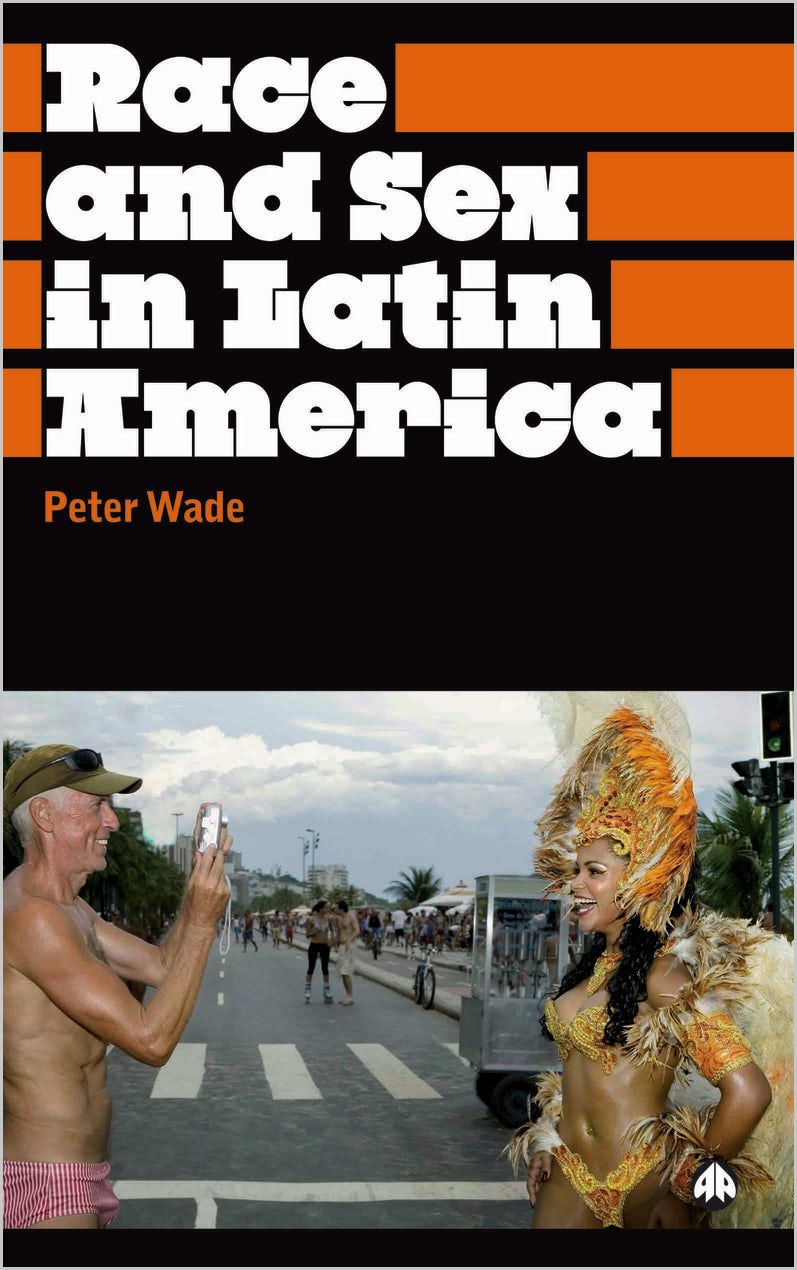Images of Latin American mestizaje and the politics of comparisonPosted in Articles, Caribbean/Latin America, History, Media Archive, Politics/Public Policy, Social Science on 2010-01-20 22:03Z by Steven |
Images of Latin American mestizaje and the politics of comparison
Bulletin of Latin American Research
Volume 23, Number 3 (2004)
pp. 355–366
DOI: 10.1111/j.0261-3050.2004.00113.x
Peter Wade, Professor of Social Anthropology
University of Manchester
In a presidential address to the Organization of American Historians, Gary Nash (1995) reveals ‘the hidden history of mestizo America’ (by which he in fact means North America). The emergence of what might have been ‘a mixed-race American republic’ was blocked by ‘prejudice and violence’ (1995: 945), but in particular situations, racial and cultural mixture existed, was recognised and even valued. Nash bemoans ‘today’s multicultural wars’ in which multiculturalism is often construed simply as ‘multiracialism’ leading towards ‘a definitional absolutism that has unwittingly defeated egalitarian and humanitarian goals by smothering inequalities of class and fuelling interethnic and interracial tensions that give more powerful groups opportunities to manipulate these divisions’ (1995: 961). He concludes that what is needed is a ‘pan-ethnic, pan-racial, antiracist sensibility’; he thinks that ‘only through hybridity—not only in physical race crossing but in our minds as a shared pride in and identity with hybridity—can our nation break the ‘‘stranglehold that racialist hermeneutics has over cultural identity’’’ (1995: 962, citing Klor de Alva).
Nash uses Latin America as an explicit counterpoint in his argument, stating that in Spanish America there were ‘no prohibitions against interracial contact and interracial marriage’ (1995: 951)—which is in fact quite wrong (Martinez-Alier, 1974; Morner, 1967). Still, he cautions it would be ‘foolish to overromanticize this mixing of blood’ (1995: 952) and recognises the existence of racism in the casta paintings of eighteenth century Mexico that depicted mixed-race types. Yet he also sees mestizaje (he uses the Spanish word for racial and cultural mixture) as the enemy of ‘racial absolutism’ (1995: 961) and states that ‘racial blending is undermining the master idea that race is an irreducible marker among diverse peoples’ (1995: 960).
Others have also recently invoked Latin American mestizaje (or mesticagem in Portuguese) as an antidote to US-style logics of racial categorisation. Some of this comes from the literature (much of it US-based) on mixed-race people, which shares with Nash a desire to reassess and relocate mixture in US society (Root, 1992, 1996; Spickard, 1989, 2001; Zack, 1995). Fernandez, for example, while acknowledging that racism exists in some form in Mexico and Brazil, nevertheless contends that ‘customary forms of discrimination based on actual ancestry have been rendered impotent’ by centuries of mixture (Fernandez, 1992: 132). As a result, Mexicans in the USA may be able to disrupt and even ‘neutralize’ the US racial system by affirming their own mixed racial identities. Indeed, ‘mestizaje. . .as a social norm. . .can free us all from the limits of ethnocentrism’ (Fernandez, 1992: 139, 140). Alcoff does not go so far as to claim that mestizo identity might neutralise racial categories, but she does invoke Latin American history and experience as an example of the development of identities not based on concepts of purity (Alcoff, 1995). Anzaldua’s well-known work is also part of this trend, with an even more explicit valorisation of mestizaje as a positive force for the future in terms reminiscent of José Vasconcelos’s invocation of the raza cosmica (Anzaldu´a, 1987; Vasconcelos, 1997 [1925]).
Latin America has often served as a counterpoint in comparative ponderings about race, especially in the Americas. The hoary notion of a Latin American ‘racial democracy’ has been subject to devastating critique, yet we see that Latin American mestizaje is still, amazingly, being held up by some as an example from which the rest of the world (particularly the USA) could learn. This trend is linked to a broader postcolonialist interest in processes of mixture and hybridity, which casts Latin American processes of mestizaje in a positive light. It should be clear that over-optimistic assessments of hybridity need to learn from the Latin American experience, and overoptimistic assessments of Latin American mestizaje need reminding of some home truths about racism in Latin America.
More fundamentally, I argue that there is an essential element to ideas about mixture which means that it can never simply be put in a relation of opposition to racial absolutes, or portrayed as necessarily destabilising them. Mestizaje, while it appears to erase origins and primordial categories of race and culture, actually continually reconstructs them. It depends on the idea of original or parent races and cultures to constitute the very possibility of mixture. All identities are constituted relationally and depend on others to exist, and mestizo identities are no exception. They may be deployed to different effects in different contexts, but to exist at all, they must invoke origins. The reconstitution of racial origins is an inherent part of mestizaje. Blackness, whiteness and indigenousness are constantly being recreated as, in a real sense, racial absolutes with primordial origins. Mixture can not be simply set against original and essential identities. Instead, it recreates them and redeploys them and, in doing so, re-establishes the basis for racism. The recreation of blackness does not automatically mean that anti-black racism will be directed against that category, but the former is a necessary condition for the latter, if not a sufficient one. In short, to see mixture and hybridisation as inherently opposed to racial absolutism and essentialism is quite wrong…
Read or purchase the article here.
